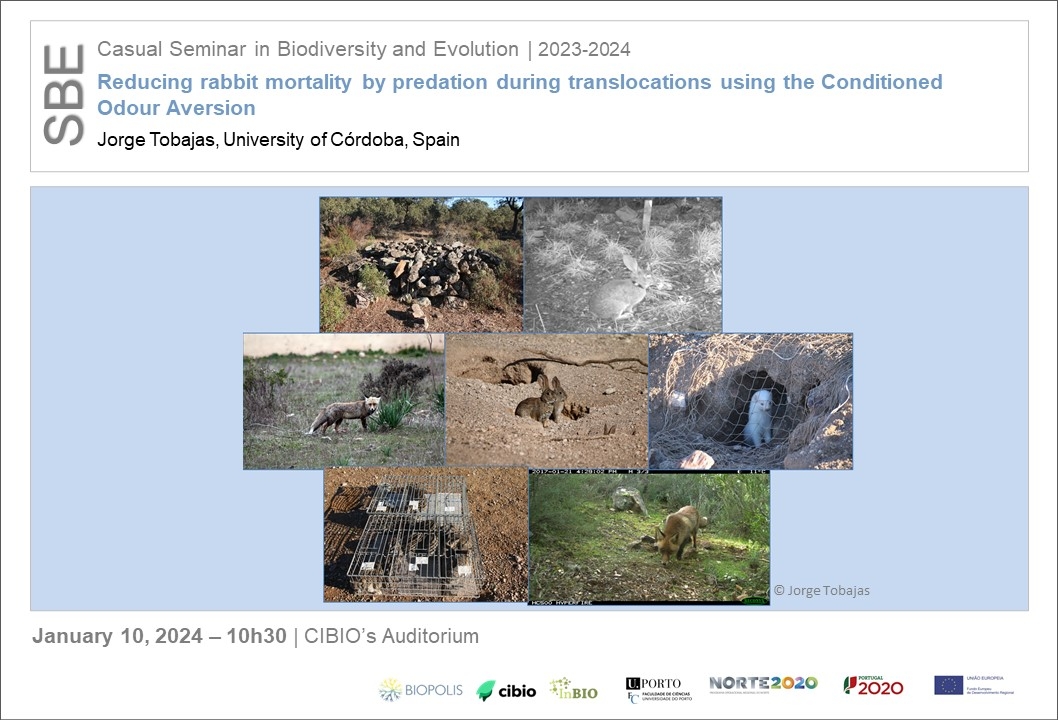Reducing rabbit mortality by predation during translocations using the Conditioned Odour Aversion
10 Jan 2024 - Jorge Tobajas, University of Córdoba, Spain | 10h30 | CIBIO's Auditorium

CASUAL SEMINAR IN BIODIVERSITY AND EVOLUTION
Predation is an important factor in the prey population dynamics and could regulate the population recovery in low prey abundances. Translocations are a common practice to try to recover prey populations, but most translocations are ineffective due to the high predation during the first days after release. We tested whether conditioned food aversion with levamisole plus an odor cue can reduce rabbit predation by red foxes (Vulpes vulpes) and improve European rabbit (Oryctolagus cuniculus) populations after translocations by using a before-after control-impact design. We induced Conditioned Food Aversion to foxes using levamisole and vanilla essence, while we monitored bait intake and translocated rabbits establishment, abundance and survival. The treatment stopped bait intake proportion by foxes in the post-conditioning phase (15 weeks). The translocation and the treatment showed a significant effect in the rabbit population growth after the translocation, increasing the rabbit abundance. Contrary, the translocation showed a weak effect in the control area with a slight increase of rabbit abundance during the study period. The rabbits establishment on warrens increased significantly more after the translocations in the treatment areas than in the control areas. Rabbit survival in the short-term after translocation was higher in the treatment areas than in the control areas. Our study shows that conditioned food aversion plus odor cue reduced rabbit predation by foxes, and had a positive effect on the rabbit population growth after translocation, increasing the rabbit survival and warren establishment. This method could be used as a non-lethal tool for conservation and game management.
I am a postdoctoral researcher at the University of Cordoba (Spain). My research career has been focused on wildlife management and conservation. I specialize in the field of conservation biology, with a keen interest in integrating applied, interdisciplinary, and transdisciplinary approaches to address conservation challenges. This involves combining various disciplines such as ecology, toxicology, physiology, behavioral ecology, and sociology in an integrated manner for wildlife management and conservation. My primary research line revolves around human-wildlife interactions, with a particular emphasis on conflicts between humans and wildlife. My research has primarily focused on developing non-lethal methodologies to reduce predation, with significant advancements in conditioned food aversion as a tool to mitigate predation. As a result, several research lines have emerged to apply these techniques in different situations and countries, for addressing conflicts with invasive species, bears attacking homes, wild boars destroying crops or protecting translocated rabbits, utilizing the novel tool developed in my research, the conditioned odor aversion.
[Host: Nuno Santos, Conservation Genetics and Wildlife Management - CONGEN]